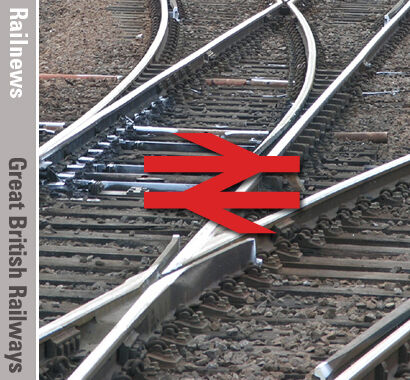A campaigning group opposing privatisation has launched a new report which calls on the government to complete renationalisation of the railways by abolishing rolling stock leasing companies, boosting rail investment and reversing the ’disaggregation’ of the railways which was a major element of privatisation 30 years ago.
The report, ‘Passengers, not profit: a vision for the Railways Bill’, has appeared two days before the publication of the Retail Prices Index figure for July, which is usually the base for changes in rail fares in the following year.
Unconfirmed reports are claiming that RPI last month was 4.5 per cent, and that this, plus a 1 per cent ‘real terms’ rise, would push up regulated fares by 5.5 per cent in 2026.
The group, We Own It, is welcoming renationalisation in principle, but adds: ‘There are huge risks for the government here too. Public ownership of [train operators] is absolutely necessary, but that policy change alone is not sufficient to deliver the “new future” that passengers in England, Wales and Scotland are desperate for.
‘Without the right implementation and package of broader reforms, the results could disappoint passengers. Public ownership must be a clear success and it must be seen as such.’
The report will make several ‘demands’. These include being ambitious for the railway by increasing investment to levels comparable with other European countries such as Switzerland. The report also calls for cross-subsidy, ‘using profits to provide more services, integration, collaboration, efficient planning and a vision for the whole network’, rather than ‘continuing with disintegration and chaos’.
It will also demand that competition law dating from 1993 should no longer apply to the railways, giving preference to ‘economic, social and environmental benefits like increasing services for rural communities and providing access to disabled passengers’.
Meanwhile, the most recent statistics suggest that railway demand has now returned to the levels last seen before the Covid pandemic, and that growth is continuing.
Figures published by ScotRail just before the weekend revealed that almost two million people travelled by train in the week from 8 to 15 August, many of whom were travelling to Oasis concerts at Murrayfield and the Edinburgh Festivals.
Around 328,000 people travelled with ScotRail on 8 August, which was an increase of 19 per cent compared with the same day in 2024, and 327,000 on Saturday – an increase of 12 per cent. The Scottish Government has also announced that peak fares will be abolished permanently on ScotRail from 1 September, reducing some fares by almost half.
Readers’ comments
We tried all this in the Post War era, resulting in a deteriorating service for both freight customers and passengers, together with a growing deficit. The 1955 Modernisation Plan added to this deficit, building giant new marshalling yards which never got significant usage, etc.,etc. There is a saying ‘don't go back to a solution that didn't work before’. So please look for a new way forward that is genuinely new and innovative, not just blindly clinging to past political party dogmas on the Right or Left.
David C. Smith, Bletchley
[I do not believe you are comparing like with like. Where is the evidence that nationalisation resulted in ‘a deteriorating service’? The status of railways is much improved since the first nationalisation period, when the industry was tolerated by governments at best and regarded as outmoded and irrelevant at worst. What do other readers think?--Ed.]
I’ll tell you where evidence is Mr Editor, Northern Trains. Since taken back under the government control the service has deteriorated with train cancellations, shortage of stock or train crews, service levels not fully reinstated after covid and lame excuses given to the travelling public. It was never as bad as it is now under Arriva or First. Take it from a regular user.
H.Gillies-Smith, South Milford
[Neither Mr Smith of Bletchley nor I were referring to recent renationalisations but the original nationalisation years following 1948. The continuing problems at operators like Northern now probably have a number of causes, some of which may be long-standing. In any case, the transport secretary has warned that renationalisation is not a ‘silver bullet’.--Ed.]
It seems that in the dash for privatisations thirty or so years ago, political considerations were dominant, and we ended up with a basically unworkable franchise model for passenger rail. We also were given privatisation of that ultimate monopoly, the water boards. Now most commentators seem to be saying that the privatisation of water supply was a big mistake, whilst the privatised railway had, it seems, been acheiving an approximate doubling of traffic before the coming of Covid . As far as is known, there is no country on Earth that has had a totally State run , or completely unfettered capitalist economy. Some things are better within the machinery of the State, whereas others work best in the context of a free, dynamic market . My consideration is that the railway might take a "horses for courses" structure rather than "one size fits all".
David C. Smith, Bletchley.
What do you think? Click here to let us know.


